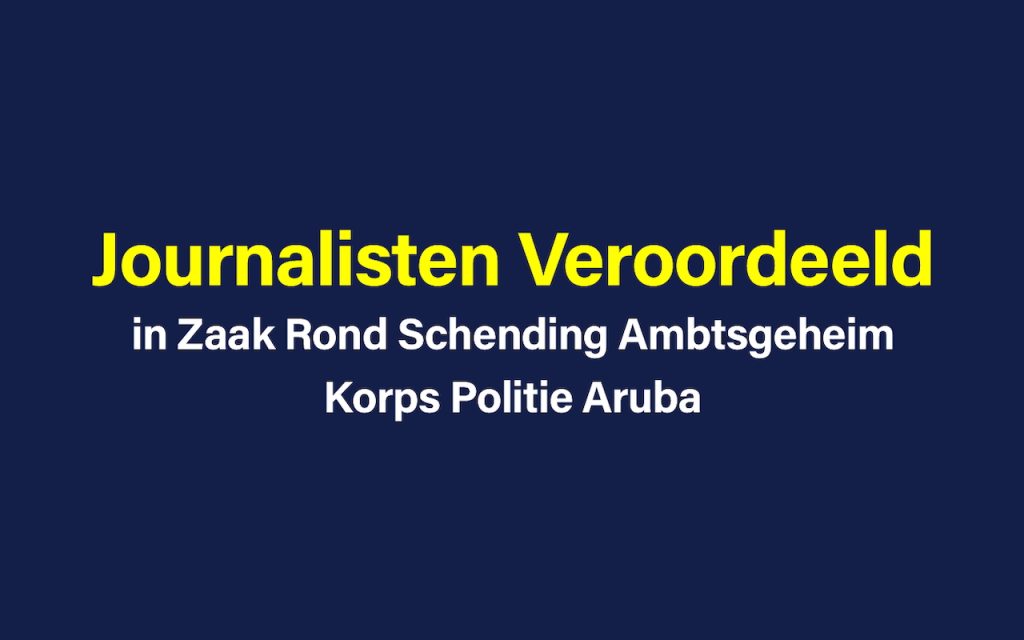
Oranjestad - Aruba's Court of First Instance has convicted four journalists of violating the official secrecy of a police officer. In a remarkable case that drew public attention, it was found that the journalists had access to the Aruba Police Department's walkie-talkie traffic for more than two years. The rulings led to intense discussions about ethics in journalism and the relationship between media and government agencies.
Violation of Official Secrets and Bribery
The journalists were found guilty of violating official secrecy in cooperation with a police officer, who shared confidential information. Three of them were additionally convicted of bribery. The court ruled that these journalists knowingly and actively obtained and used confidential communications, which seriously violated trust in the police and the rule of law.
Verdict (ECLI:NL:OGEAA:2024:247)
"The court considers that the accused, by having accessed the walkie-talkie traffic of the Aruba Police Department over a period of more than two years, violated the official secrecy of the police officer in question."
Acquittal for Criminal Organization
Although the journalists and the police officer involved were charged with participating in a criminal organization, they were acquitted. The court stated that there was insufficient evidence that the defendants worked together structurally as an organized criminal group.
Verdict (ECLI:NL:OGEAA:2024:249)
"Although the defendant participated in obtaining confidential information, there is insufficient evidence of participation in a criminal organization."
Bribery and Access to Police Communications
Three of the journalists were convicted of bribing the police officer. They paid him sums of money in exchange for access to confidential information from the Aruba Police Department.
Verdict (ECLI:NL:OGEAA:2024:248)
"The defendant engaged in bribery by providing the police officer with sums of money in exchange for access to confidential police information."
Family Law and Freedom of the Press
The court emphasized that the prolonged access to walkie-talkie traffic had serious implications for security and confidence in police procedures.
Verdict (ECLI:NL:OGEAA:2024:250)
"The court finds proof that the defendant, along with others, violated the official secrecy of a police officer by accessing police walkie-talkie traffic over an extended period of time."
Impact and Discussion
The case sparked debate about the limits of investigative journalism and the ethical obligations of journalists. While the right to information is essential in a democratic society, the court emphasized that this right is not above the law. The verdict once again highlighted the need for clear boundaries and responsibilities in journalism.
Conclusion
This case highlights the tensions between press freedom and law enforcement. The Aruba Court of First Instance's ruling serves as a warning that journalists, while playing a crucial role in society, must abide by the law and not contribute to undermining trust in government institutions.
Learn more about the statements
The full rulings are published at Jurisprudence.com Under the following ECLI numbers:
- ECLI:NL:OGEAA:2024:247
- ECLI:NL:OGEAA:2024:248
- ECLI:NL:OGEAA:2024:249
- ECLI:NL:OGEAA:2024:250

